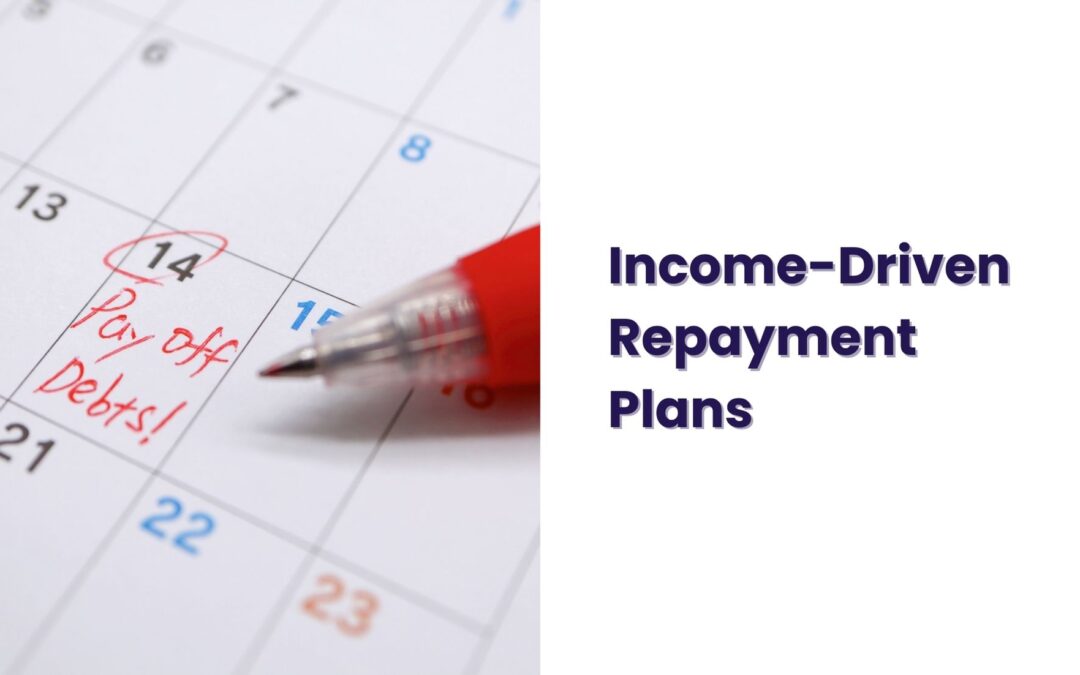
by Toulika | Nov 28, 2023 | Culture & Money, Investment
In the fast-paced world of today, where time is of the essence, waiting for loan approval can be a significant hurdle in acquiring your dream car. Instant approval car loans have emerged as a game-changer in the car financing landscape, offering a swift and efficient solution to potential car buyers.
Do you want to save money in a safe and hassle-free platform? Download the Jar App and start saving in 24k digital gold!
The Basics of Instant Approval Car Loans
Instant approval car loans, as the name suggests, provide borrowers with a quick and seamless approval process. Unlike traditional loans that may take days or even weeks for approval, these loans offer a rapid turnaround, allowing individuals to get behind the wheel of their desired vehicle sooner rather than later.
How Instant Approval Car Loans Work
The process is simple and user-friendly. Applicants can complete the entire loan application online, eliminating the need for time-consuming visits to financial institutions. Eligibility criteria are often clear and straightforward, and the approval itself is expedited, making it an attractive option for those with a need for speed.
Advantages of Instant Approval Car Loans
Time-Saving Benefits
The primary advantage of such car loans is the time saved in the approval process. In a matter of hours, applicants can go from filling out an online form to having the funds ready for their car purchase.
Flexibility in Loan Options
Instant approval doesn’t mean compromising on loan options. Borrowers can still choose from a range of loan terms, interest rates, and down payment options, providing the flexibility needed to tailor the loan to their financial situation.
Considerations Before Applying
While the allure of quick approval is enticing, it’s crucial to consider the terms and conditions of the loan. Interest rates may vary, and borrowers should be aware of how the loan may impact their credit score.
Top Providers in Instant Approval Car Loans
Several lenders specialize in such car loans. A comparative analysis of these lenders can help prospective borrowers choose the one that best aligns with their needs.
Tips for a Successful Instant Approval Car Loan Application
1. Check and Improve Your Credit Score:
- Before applying, obtain a copy of your credit report. A higher credit score increases your chances of approval and may result in better interest rates.
2. Understand Your Budget:
- Evaluate your financial situation to determine how much you can comfortably afford as a monthly car payment. This ensures you choose a loan that aligns with your budget.
3. Research Lenders:
- Not all lenders offer the same terms. Research various lenders specializing in instant approval car loans. Compare interest rates, loan terms, and customer reviews to make an informed decision.
4. Gather Necessary Documentation:
- Accelerate the approval process by having all required documents ready. Common documents include proof of income, identification, and details about the car you intend to purchase.
5. Be Honest About Your Financial Situation:
- Transparency is key. Be honest about your financial situation when filling out the application. Lenders appreciate honesty and may offer more tailored solutions.
6. Consider a Co-Signer:
- If your credit is less than perfect, having a co-signer with a stronger credit history can increase your chances of approval and potentially secure better loan terms.
7. Shop for the Best Interest Rates:
- Interest rates can vary among lenders. Take the time to shop around for the best rates, as even a small difference can significantly impact the total cost of the loan.
8. Read the Fine Print:
- Carefully review the terms and conditions of the loan. Look for any hidden fees, prepayment penalties, or conditions that may impact your decision.
9. Negotiate Terms if Possible:
- Even with instant approval loans, there may be room for negotiation. Don’t hesitate to discuss terms with the lender, especially regarding interest rates and down payments.
10. Consider a Shorter Loan Term:
- While longer loan terms may seem appealing for lower monthly payments, they often result in higher overall interest costs. Consider a shorter loan term if your budget allows.
11. Factor in Additional Costs:
- Beyond the loan amount, consider additional costs like insurance, taxes, and maintenance. Ensuring you can cover all associated costs is essential for a successful car ownership experience.
12. Avoid Applying for Multiple Loans Simultaneously:
- Each loan application may result in a hard inquiry on your credit report, potentially affecting your credit score. Limit the number of applications to avoid negative impacts.
13. Be Wary of Scams:
- Verify the legitimacy of the lender. Scams are prevalent, especially online. Check reviews, look for a physical address, and ensure secure online transactions.
14. Be Mindful of the Loan’s Impact on Credit:
- While timely payments can positively impact your credit score, missed payments can have the opposite effect. Be confident in your ability to meet the loan obligations.
15. Seek Professional Advice if Needed:
- If navigating the loan process seems overwhelming, consider seeking advice from financial professionals. They can provide guidance based on your specific circumstances.
By following these tips, you can navigate the process of securing an instant approval car loan more effectively, ensuring that you make informed decisions that align with your financial goals.
Common Misconceptions
There are misconceptions surrounding instant approval car loans, such as high-interest rates or hidden fees. Addressing these myths helps borrowers make more informed decisions.
Potential Drawbacks
While the speed of approval is a significant advantage, borrowers should be aware of any hidden fees or charges associated with instant approval loans. Understanding the potential drawbacks ensures a transparent borrowing experience.
Real Customer Experiences
To provide a human touch to the article, including real stories or testimonials from individuals who successfully navigated the car loan process can be impactful.
How Instant Approval Car Loans Impact Credit Scores
Contrary to common belief, these car loans can positively impact credit scores if managed responsibly. Understanding this impact is crucial for borrowers concerned about their credit history.
Future Trends in Instant Approval Car Loans
As technology continues to evolve, the future of instant approval car loans looks promising. Advancements in AI and machine learning are likely to further streamline the lending process, enhancing customer experiences.
Alternatives to Instant Approval Car Loans
While instant approval is appealing, exploring alternative financing options, such as traditional loans or leasing, can provide a comprehensive view of the choices available.
The Role of Technology in Instant Approval Loans
The integration of technology in the lending industry is revolutionizing the way loans are approved and processed. AI and machine learning contribute to more accurate risk assessments and, consequently, improved approval rates.
Conclusion
In conclusion, instant approval car loans offer a swift and convenient solution for individuals looking to make their car ownership dreams a reality. However, it’s crucial to approach these loans with a clear understanding of the terms and potential implications. By staying informed and considering all options, borrowers can confidently drive their dreams forward.
Frequently Asked Questions (FAQs)
Are instant approval car loans suitable for individuals with bad credit?
Instant approval loans may still be an option, but applicants with bad credit should be mindful of potentially higher interest rates.
Do instant approval car loans affect my credit score?
When managed responsibly, these loans can positively impact credit scores by demonstrating timely repayments.
What documents are typically required for an instant approval car loan?
Common documents include proof of income, identification, and details about the intended vehicle purchase.
Are there hidden fees associated with instant approval car loans?
It’s essential to carefully review the terms of the loan to identify any potential hidden fees or charges.
Can I negotiate terms with lenders offering instant approval car loans?
While the approval process is quick, borrowers may still have room to negotiate terms, especially interest rates and down payments.

by Toulika | Nov 28, 2023 | Culture & Money, Investment, Savings
Embarking on a journey to expand your business through franchising is an exciting venture, and understanding the ins and outs of franchise loans is crucial for success. In this guide, we delve into the world of franchise loans, offering insights, tips, and real-world experiences to guide you through this financial landscape.
Explore the world of franchise loans and discover how they can fuel your entrepreneurial journey. Do you want to save money in 24k digital gold? Download the Jar App and start saving.
Introduction to Franchise Loans
Franchise loans, a key player in the business expansion game, empower entrepreneurs to replicate successful business models. These loans cater specifically to franchisees, providing funds for initial franchise fees, equipment, and working capital. Let’s explore the facets of franchise loans that make them a viable option for ambitious business owners.
Franchise Loans: The Gateway to Expansion
Franchise loans serve as the gateway to business expansion by offering financial support for franchise fees. These loans enable entrepreneurs to tap into established brands, reducing the risks associated with starting a new venture from scratch.
Navigating the Franchise Loan Application Process
Securing a franchise loan involves a meticulous application process. Lenders scrutinize your business plan, financial statements, and credit history. Learn how to present a compelling case to increase your chances of approval.
Pros and Cons of Franchise Loans
Like any financial decision, franchise loans come with their set of pros and cons. Weighing these factors is essential to determine if a loan aligns with your business goals.
Tips for Successful Franchise Loan Applications
Navigating the landscape of franchise loans requires strategic planning and a well-prepared approach. Here, we delve deeper into actionable tips that can significantly enhance your chances of a successful franchise loan application. These insights, drawn from the experiences of seasoned entrepreneurs, provide valuable guidance for anyone seeking financial support for their franchise venture.
Crafting a Compelling Business Plan
Your business plan serves as the bedrock of your franchise loan application. It’s not just a document; it’s your pitch to potential lenders. In this section, we explore the key elements that make a business plan stand out:
Clearly Define Your Business Model
Articulate your business model concisely. Describe the products or services you offer, your target market, and the unique value proposition that sets your franchise apart.
Thorough Market Analysis
Lenders want to see that you’ve done your homework. Conduct a comprehensive market analysis, showcasing a deep understanding of your industry, competitors, and target audience. Use data to support your projections.
Financial Projections
Presenting accurate financial projections is crucial. Outline your revenue forecasts, expense estimates, and expected return on investment. Be realistic, transparent, and demonstrate a clear path to profitability.
Building a Robust Financial Profile for Franchise Loans
Lenders assess your financial health to gauge your ability to repay the loan. Strengthen your financial profile with these strategies:
Improve Your Credit Score
A higher credit score enhances your credibility. Clear any outstanding debts, pay bills on time, and rectify any errors on your credit report. A strong credit history instills confidence in lenders.
Manage Existing Debts
Lenders evaluate your debt-to-income ratio. Aim to reduce existing debts to create a favorable financial profile. This not only improves your loan eligibility but also showcases responsible financial management.
Showcase Financial Stability
Demonstrate stability in your financial history. Highlight consistent revenue, responsible spending, and sound financial management practices. This builds trust and confidence in your ability to handle the financial responsibilities of a franchise.
Establishing a Strong Relationship with the Franchisor
Lenders often consider the relationship between the franchisee and franchisor. Showcase a positive and collaborative relationship to strengthen your application:
Franchisor Support Letters
Obtain support letters from the franchisor, expressing confidence in your ability to successfully operate the franchise. This can be a powerful endorsement that adds credibility to your application.
Franchise Training and Support
Highlight any training or support programs offered by the franchisor. This not only demonstrates the franchisor’s commitment to your success but also showcases a structured approach to business operations.
Seek Professional Guidance
Navigating the complexities of a franchise loan application can be challenging. Seeking guidance from professionals in the field can be a game-changer:
Consult with Financial Advisors
Engage with financial advisors who specialize in franchise financing. Their expertise can provide valuable insights, helping you make informed decisions and present a compelling loan application.
Legal Counsel
Consider seeking legal advice to review the franchise agreement and any legal implications. Understanding the terms and conditions thoroughly ensures you make informed decisions and present a well-rounded application.
Incorporating these tips into your franchise loan application strategy positions you for success. Remember, meticulous preparation, transparency, and a well-presented case can make all the difference in securing the financial support needed to turn your franchise dreams into reality. Good luck on your entrepreneurial journey!
FAQs on Franchise Loans: Addressing Common Concerns
As you venture into the world of franchise loans, it’s natural to have questions. Here are some frequently asked questions to demystify the process.
Are Franchise Loans Only for Established Brands?
These loans cater to a variety of brands, not just established ones. Learn how even emerging franchises can secure funding to fuel their growth.
What Factors Affect Loan Approval?
Loan approval hinges on several factors. Uncover the key elements that lenders consider when evaluating loan applications.
How Long Does the Approval Process Take?
Timing is crucial when it comes to business expansion. Gain insights into the typical timeline for the approval of these loans and how to expedite the process.
Can I Use Franchise Loans for Working Capital?
These loans extend beyond initial fees. Understand how these loans can also be utilized for essential working capital to ensure a smooth business operation.
What Happens If My Franchise Faces Challenges?
Entrepreneurship is not without challenges. Learn how to navigate setbacks and challenges that may arise during the franchise journey.
Are There Alternatives to Franchise Loans?
Explore alternative financing options for business expansion, providing a comprehensive understanding of the various avenues available.
Conclusion
In conclusion, franchise loans open the door to limitless possibilities for business expansion. By understanding the intricacies of these financial instruments and learning from success stories, entrepreneurs can confidently take the leap towards franchising success.

by Toulika | Nov 28, 2023 | Culture & Money, Investment, Savings
Understanding the intricacies of income-driven repayment plans is crucial for anyone managing federal student loans. These plans provide flexibility based on your income, ensuring that loan payments are manageable. Let’s delve into the details to empower you in making informed financial decisions.
Have you ever thought of saving in 24k digital gold? We have got you covered. Download the Jar App and start saving today!
Types of Income-Driven Repayment Plans
Income-Based Repayment (IBR)
Income-Based Repayment sets your monthly payments as a percentage of your discretionary income. This plan is suitable for borrowers with high debt relative to their income.
Pay As You Earn (PAYE)
PAYE limits monthly payments to 10% of discretionary income, offering forgiveness after 20 years of qualifying payments. It’s tailored for borrowers with a partial financial hardship.
Revised Pay As You Earn (REPAYE)
REPAYE expands on PAYE, opening eligibility to a broader range of borrowers. Monthly payments are also capped at 10% of discretionary income, with forgiveness available after 20 or 25 years.
Income-Contingent Repayment (ICR)
ICR calculates payments based on either 20% of discretionary income or what you’d pay on a fixed 12-year plan, adjusted to income. Forgiveness is possible after 25 years.
Eligibility Criteria
To qualify for income-driven plans, your income, federal student loan types, and loan forgiveness possibilities must align. Meeting these criteria ensures you can benefit from the flexibility these plans offer.
How to Apply
Navigating the application process for income-driven repayment plans involves several key steps.
Application Process Overview:
- Contact Your Loan Servicer: Begin by reaching out to your loan servicer to express interest in an income-driven plan. They can guide you through the specifics and provide essential information.
- Gather Necessary Documents: Prepare documents that demonstrate your income, such as tax returns and recent pay stubs. Accurate information is crucial for determining your eligibility and payment amount.
- Complete the Application Form: Fill out the income-driven repayment plan application form provided by your loan servicer. Ensure all information is accurate and up-to-date.
- Submit the Application: Send your completed application and supporting documents to your loan servicer. Many servicers allow online submission for convenience.
Document Submission Requirements:
- Income Documentation: Recent tax returns, pay stubs, or other proof of income are typically required.
- Family Size Information: Some plans consider family size in determining eligibility, so be prepared to provide relevant details.
- Loan Information: Have information about your federal student loans ready, including types and amounts.
Common Mistakes to Avoid:
- Incomplete Information: Ensure all sections of the application are filled out accurately. Incomplete information can lead to delays in processing.
- Missed Deadlines: Pay attention to application deadlines and recertification dates. Missing deadlines may result in temporary payment increases.
- Ignoring Communication: Stay in touch with your loan servicer. Respond promptly to any requests for additional information or clarification.
Pros and Cons of Income-Driven Repayment Plans
Advantages
- Affordability: Monthly payments adjust to your financial situation, preventing financial strain during challenging times.
- Loan Forgiveness: Remaining balances may be forgiven after a set period (usually 20 or 25 years), providing a light at the end of the tunnel for borrowers.
- Flexibility: Plans accommodate changes in income, ensuring that your repayment plan remains aligned with your financial reality.
Disadvantages
- Extended Repayment Periods: While affordable, income-driven plans can extend repayment periods, resulting in more interest paid over the life of the loan.
- Tax Implications: Forgiven amounts might be considered taxable income, potentially leading to a tax bill down the line.
- Complexity: Understanding the details of each plan can be challenging. Borrowers must invest time in research to make informed decisions.
Tips for Successfully Navigating Income-Driven Repayment
Monitoring Income Changes
- Regularly Recertify Income: Most income-driven plans require annual recertification. Stay vigilant about deadlines to avoid unexpected payment increases.
- Report Changes Promptly: If your income changes significantly between recertification periods, report it promptly to your loan servicer to adjust your payment plan.
Staying Informed About Plan Adjustments
- Keep Up with Policy Changes: Stay informed about any changes in federal student loan policies and income-driven repayment plans. Being aware of adjustments helps you plan accordingly.
- Understand Temporary Relief Options: In times of financial hardship, explore temporary relief options such as deferment or forbearance, provided by some income-driven plans.
Seeking Professional Advice
- Consult Financial Advisors: If navigating income-driven plans becomes overwhelming, seek advice from financial advisors specializing in student loan management.
- Explore Loan Forgiveness Opportunities: Understand the conditions for loan forgiveness and explore if you qualify. Professional advice can help you make strategic decisions.
Frequently Asked Questions
1. What happens if my income changes dramatically?
If your income experiences a significant shift, contact your loan servicer immediately. They can help adjust your payment plan accordingly.
2. Can I switch between different income-driven plans?
Yes, you can switch plans if your financial situation changes. It’s advisable to consult with your loan servicer to explore the best options.
3. Are all federal student loans eligible for income-driven repayment?
Most federal student loans qualify for income-driven repayment, but some may require consolidation for eligibility. Check with your loan servicer for specifics.
4. How does loan forgiveness work under these plans?
Loan forgiveness typically occurs after making qualifying payments for 20 or 25 years, depending on the plan. Any forgiven amount may have tax implications.
5. Are there any tax implications?
Yes, forgiven amounts may be considered taxable income. It’s essential to understand and plan for potential tax obligations.
6. How do income-driven plans compare to standard repayment?
Income-driven plans offer flexibility based on income, while standard repayment follows a fixed payment schedule. Choosing between them depends on your financial situation and preferences.
7. Can private student loans be included in income-driven plans?
No, income-driven plans are specific to federal student loans. Private student loans have separate repayment terms determined by the lender.
8. What if I lose my job or face financial hardship?
In case of job loss or financial hardship, contact your loan servicer promptly. They may offer temporary relief options, such as deferment or forbearance.
9. Are there income-driven plans for parent PLUS loans?
Parent PLUS loans are not eligible for all income-driven plans. However, consolidating them into a Direct Consolidation Loan may open up income-driven repayment options.
10. How does marriage affect my income-driven plan?
Marriage can impact your income-driven plan, as spousal income is considered for some plans. Consult with your loan servicer to understand the implications and potential adjustments.
Conclusion
Navigating income-driven repayment plans is a strategic move toward financial stability. By understanding the nuances of each plan, being aware of eligibility criteria, and staying proactive in managing your finances, you can harness the benefits these plans offer.

by Toulika | Nov 27, 2023 | Culture & Money, Investment, Savings
In the intricate world of personal finance, the Debt-to-Income Ratio (DTI) stands as a crucial indicator of your financial health. But what exactly does this term entail, and why should you pay attention to it?
Do you want to save money in 24k digital gold? Download the Jar App now and start saving!
Decoding Debt-to-Income Ratio: A Deep Dive
The Debt-to-Income Ratio is a numerical expression that illustrates the percentage of your income allocated to debt repayment. This includes all your monthly debts, such as mortgages, car loans, and credit card payments, divided by your gross monthly income.
Why DTI Matters: The Significance Unveiled
Financial Stability Checkpoint
Maintaining a healthy DTI is not just a number-crunching exercise; it’s a reflection of your financial stability. Lenders often use this ratio to assess your ability to manage additional debt responsibly. A lower DTI suggests a more stable financial standing, increasing your chances of securing favorable loan terms.
Realizing Your Financial Goals
Mastering your Debt-to-Income Ratio is not solely about impressing lenders. It’s a strategic move to empower your financial journey. By optimizing your DTI, you open doors to achieving your long-term goals, whether it’s buying a home, pursuing education, or enjoying a debt-free retirement.
Calculating Debt-to-Income Ratio: A Simple Guide
Step 1: Gather Your Monthly Debts
Begin by listing all your monthly debt obligations. This encompasses everything from your mortgage and car loans to credit card payments and student loans.
Step 2: Determine Your Gross Monthly Income
Calculate your gross monthly income, including wages, bonuses, and any other sources of income.
Step 3: Crunch the Numbers for your Debt-to-Income Ratio
Divide your total monthly debts by your gross monthly income and multiply the result by 100 to get your DTI percentage.
The Ideal DTI Range: Striking the Balance
Aim for 28/36
Financial experts often recommend aiming for a 28/36 DTI ratio. This means that your housing expenses should not exceed 28% of your gross income, while your total monthly debt payments, including housing, should stay below 36%.
Empowering Your Financial Journey
Strategies for DTI Optimization
- Budgeting Brilliance: Create a comprehensive budget to track and manage your expenses effectively.
- Debt Repayment Prioritization: Prioritize high-interest debts to accelerate your journey to financial freedom.
- Income Boosting Tactics: Explore avenues to increase your income, ensuring a more favorable DTI.
The Road to Financial Freedom Starts with DTI
In conclusion, understanding and optimizing your Debt-to-Income Ratio is not just a financial strategy; it’s a lifestyle choice. By embracing financial responsibility and strategically managing your debts, you pave the way for a future defined by stability and prosperity. So, embark on this journey today, armed with the knowledge to unlock the doors to your financial well-being.
FAQs About Debt-to-Income Ratio
1. What is Debt-to-Income Ratio (DTI)?
Answer: Debt-to-Income Ratio is a financial metric that calculates the percentage of your income allocated to debt repayment, providing insights into your financial health.
2. Why is DTI important?
Answer: DTI is crucial as it reflects your ability to manage debt responsibly, impacting loan approvals and terms. It’s a key indicator of financial stability.
3. How do I calculate my Debt-to-Income Ratio?
Answer: To calculate DTI, divide your total monthly debts by your gross monthly income, then multiply by 100. This simple formula offers a snapshot of your financial situation.
4. What is the ideal DTI range?
Answer: Financial experts recommend aiming for a 28/36 DTI ratio, where housing expenses should not exceed 28% of gross income, and total monthly debt payments stay below 36%.
5. How can I optimize my Debt-to-Income Ratio?
Answer: Optimize DTI through budgeting, prioritizing debt repayment, and exploring income-boosting strategies. Strategic financial management is key to achieving a favorable DTI.

by Toulika | Nov 27, 2023 | Culture & Money, Investment, Savings
In a world where financial uncertainties loom, finding a reliable source of quick funds can be a game-changer. Enter the realm of No Credit Check Loans, a financial solution that’s gaining traction for all the right reasons.
Are you someone who is looking for a safe place to save your money? Here you can save money in 24k digital gold – download the Jar App today.
The Game-Changer: No Credit Check Loans
In the fast-paced financial landscape, traditional loan applications can be cumbersome, often entailing rigorous credit checks that leave many in a bind. Here’s where No Credit Check Loans swoop in as the knight in shining armor.
Breaking Free from the Credit Conundrum
Are you plagued by a less-than-perfect credit score? Fret not, as these loans provide a much-needed escape from the shackles of credit checks. Whether you have a blemished credit history or no credit history at all, these loans open doors that traditional lenders keep firmly shut.
The Heart of the Matter: How Do No Credit Check Loans Work?
Understanding the mechanics of No Credit Check Loans is crucial. These loans essentially bypass the traditional credit verification process, focusing instead on your present financial situation. Lenders evaluate your income and employment status, granting you access to funds based on your ability to repay, rather than your credit history.
The Swift Solution for Urgent Needs
One of the standout features of these loans is their speed. Traditional loan approval processes can be agonizingly slow, especially when you’re facing a financial emergency. With No Credit Check Loans, the approval is swift, providing you with the financial support you need precisely when you need it.
Advantages Beyond the Obvious
1. Accessible to All
Whether you’re a credit newcomer or someone trying to rebuild a damaged credit history, these loans are inclusive. They recognize that everyone deserves a chance, irrespective of past financial stumbles.
2. Preserving Your Credit Score
Since there’s no traditional credit inquiry, your credit score remains untouched. For those cautious about preserving their credit rating, this is a significant relief.
3. Tailored to Your Financial Reality
Traditional loans often come with fixed terms and conditions. No Credit Check Loans, on the other hand, offer flexibility. Lenders work with you to establish terms that align with your financial capacity.
The Transition: Why No Credit Check Loans Make Sense
In a financial world filled with uncertainties, transitioning to a solution that prioritizes your current financial status just makes sense. The agility, accessibility, and tailored approach of these loans offer a refreshing departure from conventional lending norms.
Embrace Financial Freedom Today
In conclusion, if you find yourself navigating the maze of financial instability, consider the liberating option of No Credit Check Loans. Embrace the freedom of quick approvals, inclusive accessibility, and a financial solution tailored to your reality.
Conclusion
In the intricate tapestry of financial choices, these Loans emerge as a beacon of hope and accessibility. This financial solution, designed to transcend the limitations of traditional credit assessments, opens doors for individuals facing credit challenges.
As we conclude this exploration, it’s evident that No Credit Check Loans offer a refreshing departure from conventional lending norms. The emphasis on current financial stability, swift approvals, and tailored terms provides a lifeline for those in need.
Whether you’re a credit newcomer, rebuilding a damaged credit history, or simply seeking a faster financial alternative, these loans stand as a testament to inclusivity. The ability to secure funds based on your present financial situation, without the weight of past credit missteps, is a liberating prospect.
Embrace the agility, accessibility, and tailored approach of such Loans. In a world where financial freedom is paramount, this alternative lending solution offers not just funds, but a pathway to a brighter financial future. Navigate your journey with confidence, knowing that financial support is within reach, regardless of your credit history.
FAQs About No Credit Check Loans
What exactly are No Credit Check Loans?
They are financial instruments that do not require a traditional credit history review during the approval process, providing an alternative for those with imperfect credit.
Who qualifies for such Loans?
These loans are designed to be inclusive, catering to individuals with poor or no credit history. Qualification is primarily based on current financial stability, income, and employment status.
How fast can I get approved for a No Credit Check Loan?
Unlike traditional loans, the approval process for these Loans is remarkably swift. In urgent situations, you can often receive approval within a short timeframe, providing a quick financial solution.
Do No Credit Check Loans affect my credit score?
No, they don’t. Since these loans bypass traditional credit checks, your credit score remains unaffected. This makes them an attractive option for those concerned about preserving or improving their credit rating.
What makes No Credit Check Loans different from traditional loans?
The key distinction lies in the absence of traditional credit assessments. No Credit Check Loans focus on your current financial situation, offering flexibility, inclusivity, and a tailored approach that traditional loans may not provide.





